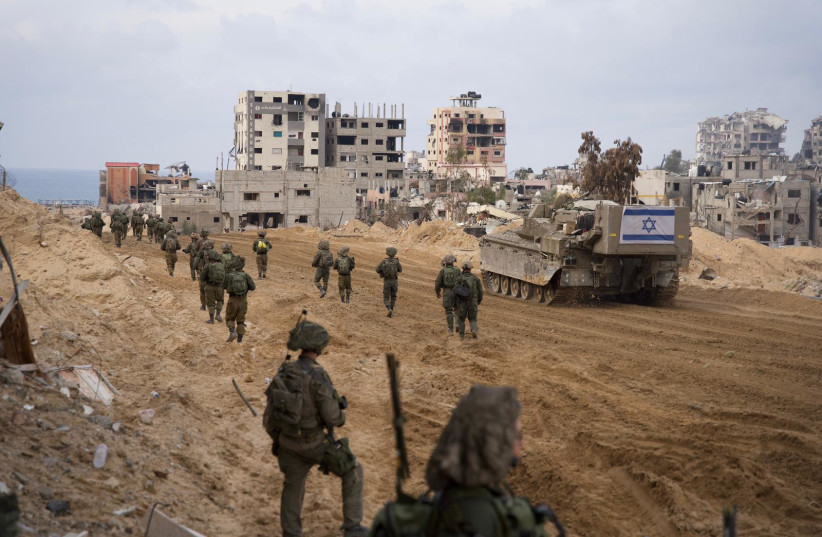IDF intelligence chief Maj. Gen. Aharon Haliva on Thursday notably left out the idea of completely destroying Hamas as a goal of the war in a speech to the next class of intelligence officer graduates.
Instead of talking about a complete defeat of Hamas as most political officials do, he referenced striking a major blow to Gaza and Iran, restoring Israeli deterrence in the region, and returning the remaining approximately 130 Israeli hostages held by Hamas.
It was unclear if Haliva's speech was the signal of IDF officials becoming more public about a scenario where Hamas is not completely defeated - something which many officials have discussed in private for the last four to six weeks - a slip of the tongue with less significance, or a Freudian slip showing what many defense officials are thinking, without realizing the textual change could make waves.
<br>Israel's 'ambiguous language'
Until October 7, for the last 16 years of rounds with Gaza, Israel, and the IDF abandoned the language of "victory" and "decisive wars" for the less ambitious but more attainable language of "restoring deterrence," even without defeating the other side.
Yet, after October 7, Israeli political officials and some defense officials have talked insistently about a decisive and complete victory over Hamas in which the organization is destroyed.
Haliva said, "The high-quality intelligence provided by IDF intelligence saves many soldiers' lives every day, as they risk their lives on the front."
He stated that the intelligence also helps "strike a major blow to our enemies, from Gaza to Iran, and on all of the fronts in the face of complex challenges."
Next, he said that IDF intelligence "collection, analysis, and operations have a decisive impact on achieving the goals of the war: returning all of the hostages to their homes, and restoring Israeli deterrence throughout the region."
Haliva continued, "this is not an easy war. It will take time. But we will achieve our mission goals."
Later in the speech, Haliva made a push for the new intelligence officers to express their opinions stridently, even if it was to superior officers and even if they knew they were likely to be in the minority.
While this last portion of the speech is fairly standard, it carried some extra tension to it this time, since there are a wealth of accusations that senior officials in IDF intelligence, possibly including Haliva himself, rejected all warnings from more junior officials that Hamas might mount a massive attack like it did on October 7.
In fact, Haliva himself is expected to resign mid-term over the failure to anticipate the October 7 Hamas invasion, despite there being warnings about it within the intelligence ranks.
Generally, senior intelligence officials brushed off the warnings as "fanciful" and shoddy unrealistic intelligence work, grasping at demons and scenarios which were disconnected from the consensus reality that Hamas was too afraid of the IDF's power to risk such a brazen attack.

